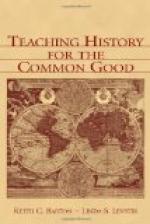34. Did Lee make more than one attempt to invade the North?
35. Was the “Ohio Idea” ever strong enough to affect legislation?
36. Did Spain have any part in calling out the Monroe Doctrine?
37. Has the United States any control over the debts of Cuba?
38. Has a joint resolution
ever been used to acquire territory
other
than that included in Texas?
39. Has the United States ever resorted to a tax on incomes?
40. Has the Federal Government
ever attempted to restrict the power
of
the press?
41. Is it illegal to-day
for a railway to give a cheaper rate to
one
shipper than to another?
42. Has the Republican
party ever reduced the protective tariffs of
the
war?
43. Did the Civil Service Act passed in 1883 include postmasters?
44. Did the Wilson-Gorman Act reduce the tariff to a revenue basis?
45. Can a railway engaged
solely in intra-state business carry a
case,
involving a reduction of their rates by the State
legislature,
to the Supreme Court of the United States?
46. Is Utah a part of the Louisiana Purchase?
47. If the mint ratio
is 16 to 1 and the market ratio is 17 to 1,
will
the gold dollar be the standard if there is full legal
tender
and free coinage for both gold and silver?
48. Is the Canadian frontier fortified?
49. Are the functions of government in this country increasing?
50. Is it possible for
a man to be defeated for the Presidency if a
majority
of the people vote for him?
The great disadvantage of this kind of review is that the students have for their answer a choice between two words, one of which is bound to be correct. Knowing nothing whatever of the subject, they will still stand a fifty per cent chance of answering correctly. The alert teacher should be able to reduce this haphazard answering to a minimum, while still reaping the advantages of rapidity and thoroughness which the plan possesses. Few other methods will cover as much ground in as short time. On the Federal Constitution there are infinite possibilities for “yes and no” questioning, which afford a brief and effective means of review in the principles of American government.
They will secure fluency
Review for the purpose of securing fluency is a consideration frequently lost sight of by high school history teachers. It may be too sanguine to expect fluency of the average student reciting on a topic for the first time. But when it is considered how very many important questions are never recited on but once, the wisdom of an occasional review to secure rapid, fluent, and complete answers to topics previously discussed is readily seen. Select a list of topics that will at one and the same




